
The only way we will get through this challenging time is together! I really believe this, and as you will read, Honors students, faculty, and staff are adapting, innovating, and working with others to respond to COVID-19. During the spring and summer, we created virtual programs for students from Grand Island, collaborated with UNMC to host a class on global responses to the COVID-19 pandemic, and zoomed in experts from around the world to make our classes more informative and interesting. I also want to share some really GREAT news. Thanks to the Cooper Foundation, the Honors Program is now hosting the E.N. Thompson Forum on World Issues, hosting Cooper Community Conversations and hiring Cooper Community Interns. In the spring, the Cooper Foundation gave the Honors Program a matching grant to provide students with paid community-based internships throughout Nebraska. Cooper Community Scholars will also be helping with the Forum on World Issues and interning around Nebraska. For investing in students, and investing in our community: thank you, Cooper Foundation! We are always in search of additional matching funds to provide students with meaningful experiences and community internships, but there are other ways to help: please contact me if you are interested in mentoring an Honors intern (pmcmahon2@unl.edu).
I will not mince words: this is a challenging time, especially for our students who do not have great internet access or do not have a conducive environment for learning remotely. We are pleased to tell them and you that UNL spent most of the summer developing protocols for creating a safe environment for learning and creating community. Although most Honors classes are still being taught in-person, some faculty and students are relying on remote teaching and learning. Our campus has a strict mask policy, all classrooms have been measured for social distancing, and many of our activities are taking place outdoors. This is not ideal, but it certainly more practical and safe.
Now, more than ever, is the time to invest in students and invest in our community - contact the Honors Program to learn more about how you can do both.
Honors Alumni Newsletter, Fall 2020
- Dr. Abla Hasan Joins Honors
- Honors Program, UNMC Offer Pandemic Seminar
- Honors Students, Continue, Expand Reach of Afterschool Program
- Honors Global Dialogues Course Continued Despite Travel Cancellations
- Learning Assistant Positions Allow Honors Students to Lead
- Nebraska Honors Helps Grand Island Students Prep for College Through New Program
Previous Alumni Newsletters
Dr. Abla Hasan Joins Honors
This semester, Dr. Abla Hasan, Associate Professor of Practice for Arabic Language and Culture in the Modern Languages department, joined the Honors team as a Faculty Fellow and the head of the World Leaders Experiential Track for 3rd and 4th year students.
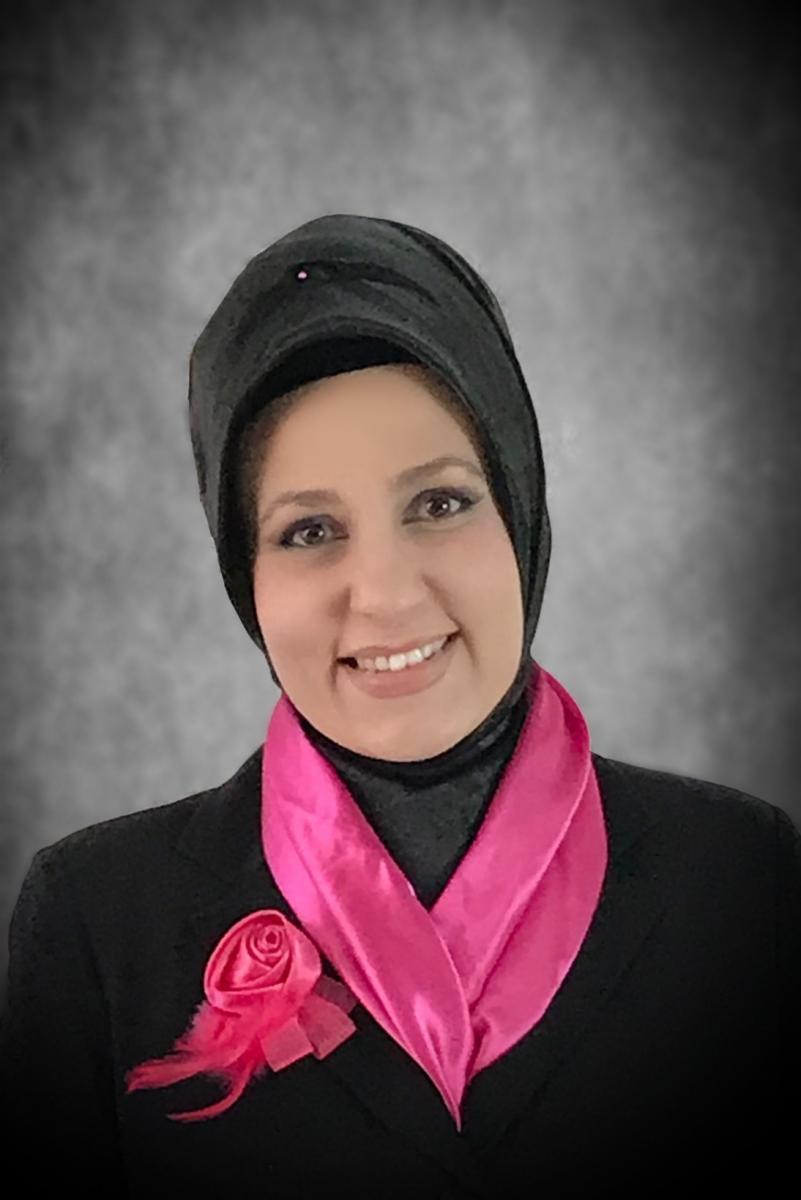
“I am so honored to be joining the Honors Program! Also, I am so excited for the many leadership opportunities and the real-world educational experiences the Program provides students and faculty! By prioritizing experiential learning, by connecting students with local leaders, and by working on global issues, the Honors Program is bringing about a paradigm shift in education and launching an inspiring new philosophy of teaching.”
As an Honors Faculty Fellow, this semester Hasan will be teaching MODL 189H: "Arab Intellectuals on Love and Gender" and next semester she will teach MODL 298H: "Global Islam: current debates". In both courses students will have the opportunity to discuss some of the most debated topics in the Arabic and Islamic culture. More hands-on experiences are to come with the fall and spring talk series Hasan has organized. For the fall our cultural talk series: Eish & Malh will connect students with experts on the Arabic culture. Bread & Salt, or Eish & Malh, is an Arabic idiom meaning: “we are now friends because we had a meal together.” These talks provide students a window into the Arab world, opportunities to explore displacement and migration, and the chance to start a meaningful conversation with UNL faculty and the Arab/Immigrant community of Lincoln. These series are co-sponsored by the Honors program and the Department of Modern languages and literatures.
Honors Program, UNMC Offer Pandemic Seminar
This summer, the University Honors Program offered a new course aimed at exploring the ongoing COVID-19 crisis through the lens of international relations, with a particular emphasis on global leadership. The five-week Honors Seminar featured live discussions via Zoom three times each week.
“Saving the World: Global Leadership in the Time of Pandemics” (UHON 298H) was taught by Patrice McMahon, director of the University Honors Program and a professor of political science.
This course represented a new iteration of a class she has taught previously, which uses an interdisciplinary approach to help students understand complex global issues and identify realistic pathways to solving those problems. While McMahon has used her “Saving the World” model in previous Honors Program 298H “Solution Seminars,” this summer’s offering narrowed the scope of the course to focus on the current pandemic, which allowed for unique and exciting collaborations.
“The NU system is full of extraordinary faculty who focus on pandemics, public health, and global politics. When I spoke with my colleague, Jessica Tschirren, who is the Assistant Dean for Student Affairs at the UNMC College of Public Health, we were easily able to put together an interesting and interdisciplinary class,” McMahon said. “I am delighted by the response we received from faculty at UNMC and UNL. This is a great demonstration of Nebraska’s expertise and collaborative spirit.”
Like all University Honors seminars, the course was designed to be discussion-based and interactive, and featured opportunities for students to interact with multiple faculty members from the University of Nebraska Medical Center College of Public Health.
Guest faculty for the course included, among others: Dr. Ali Khan, Dean of the College of Public Health, who discussed the challenges related to combating global pandemics and emerging infectious diseases; Dr. Jesse E. Bell, Claire M. Hubbard Professor of Health and Environment at University of Nebraska Medical Center, who led the students in an exploration of the connections between climate change and pandemics; Dr. Regina Werum, Professor of Sociology at Nebraska, who helped students unpack the German response to the current crisis; and many more.
Tschirren helped conclude the class by talking to students about the challenges of leadership in times of misinformation.
“We were thrilled by the opportunity to collaborate with Honors and our UNL colleagues to bring together this interesting and timely content to students,” said Tschirren. “Between our two institutions, we have such a wealth of expertise in global security and international relations, it makes perfect sense that we work together to bring that expertise to our students. Hopefully we will also inspire some to join us in this work in the future.”
The faculty from University of Nebraska Medical Center helped students in this course understand some of the science behind the pandemic, including how the virus spreads, potential treatment methods and environmental factors that could impact the virus. Through readings, videos, and other materials, students also developed a historical context for responding to pandemics and other public health crises, drawing on knowledge gained from the 1918 influenza pandemic and the more recent Ebola outbreak.
Throughout the course, McMahon lent her expertise as a scholar of International Relations, helping students understand the various institutions at work and ways that global cooperation can transpire and help to address this crisis.
“COVID-19 is a global challenge that is dramatically impacting the world,” said McMahon. “It is important for our students to know more about this crisis, and how different countries and organizations are attempting to ‘save the world.’”
Honors Students Continue, Expand Reach of Afterschool Program
While COVID-19 sidelined face-to-face interactions with youth, University of Nebraska–Lincoln Honors students worked hard to continue and expand the reach of the Honors Afterschool Clubs.
Normally supporting nearly 30 after-school programs in Lincoln Public Schools, the more than 60 University Honors Program students leading the project offered lessons via the Honors Club Repository.
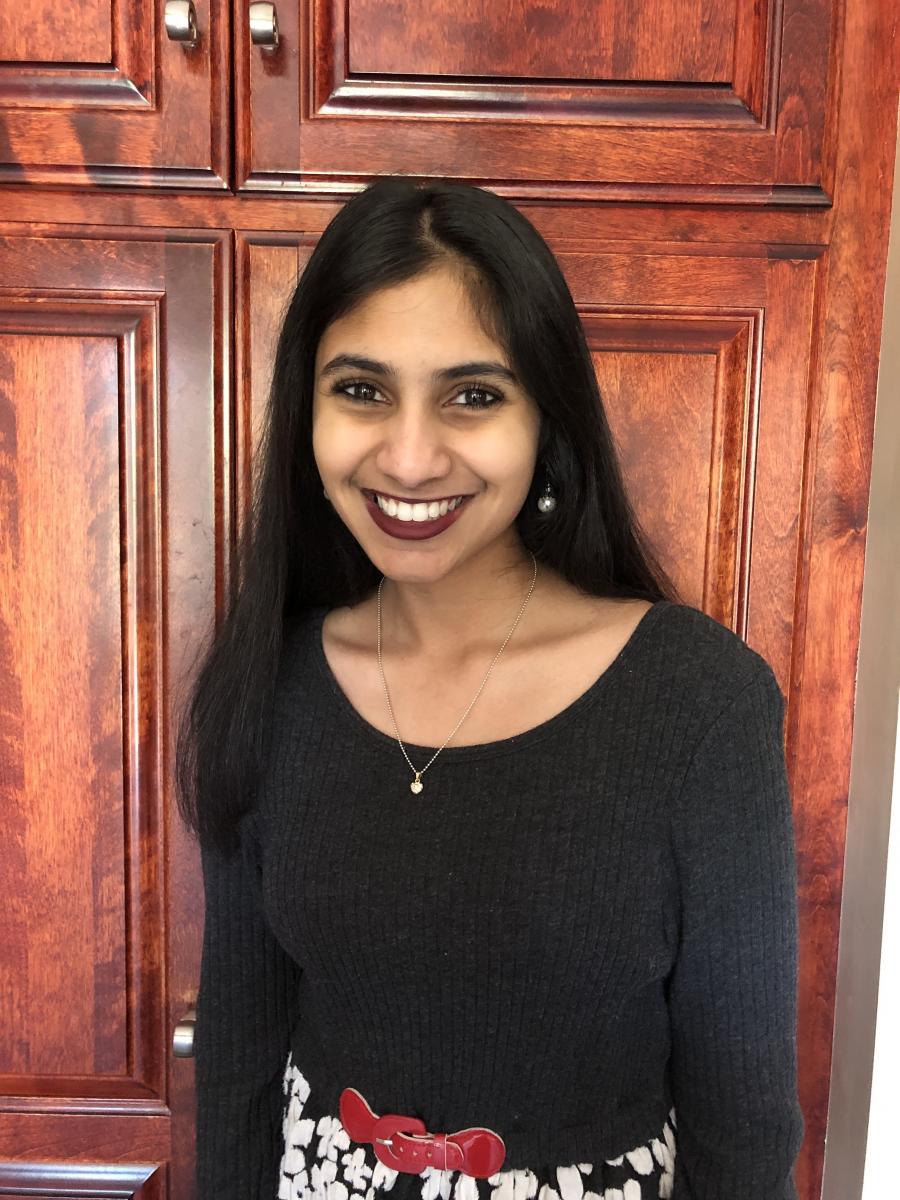
Riha Karney, a sophomore from Omaha, was among the Honors students working to improve the after-school program during the closure period.
“I really hope that my inquisitive students continued asking questions about the world around them and staying passionate about what interests them,” Karney said. “I have taken this time to do a lot of reflecting and revising my curriculum so that I can make it better — hopefully — for clubs in the fall.”
While many Honors students returned to homes in and outside of Nebraska in the spring, they continued to stay involved and make a difference through the global reach of the Honors Club Repository. Offered online, the repository allowed Honors students to have a global impact by uploading lesson plans and making them available to the public.
In April alone, Honors club curricula were downloaded in communities across the United States and in more than 20 countries.
Lessons in the repository offer parents an opportunity to entertain and educate youth without leaving home. Nearly all materials needed for the lessons can be found around a house or at a grocery store. Each lesson is available for free and includes directions on how to execute the activities.
Honors students associated with the Afterschool Clubs program also brainstormed ways they could continue to make a difference from afar.
“I’m thinking about making online instructions or fact sheets for different science activities that I can send to my site coordinator for students to access,” Karney said.
Others, having realized the impact after-school programming has made in Lincoln, worked to offer lessons in their hometowns, reaching out to childcare or community centers and sharing the curricula remotely.
“Instead of in-person sessions, I created videos for students to watch at home,” said Kate Gaulke, a sophomore from Woodbury, Minnesota. “The videos included yoga poses, mindfulness activities like nature walks, mediation exercises and a scavenger hunt.”
While they would rather have spent the semester developing relationships with LPS students face-to-face, the students relished the opportunity to adapt and expand the impact of the Honors Afterschool Clubs.
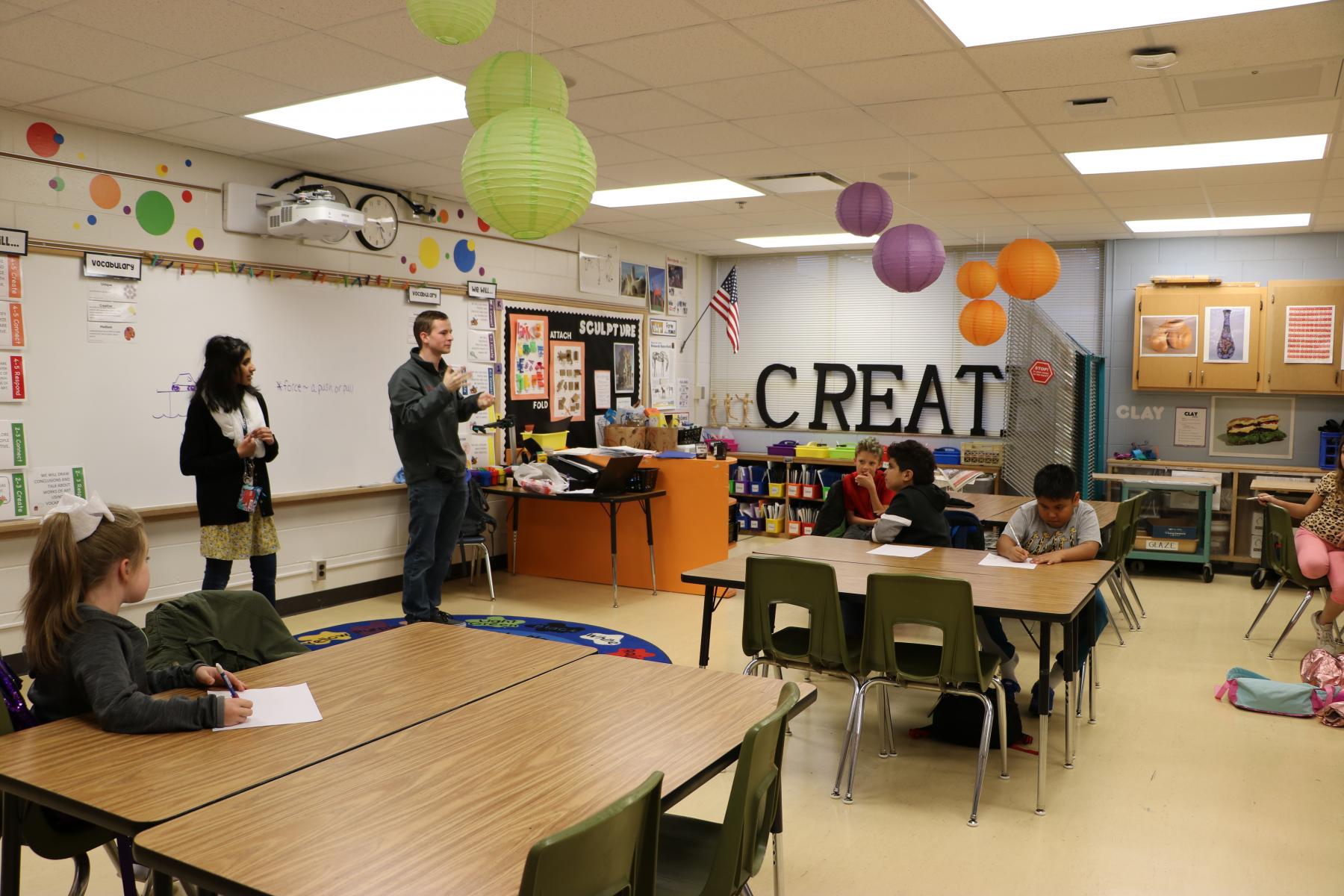
“One thing I have always loved about Honors Afterschool Clubs is the ability of the program to adapt to meet students’ needs,” said Maddie Beck, a sophomore from Wichita, Kansas. “The spring semester proved no different.”
Honors Global Dialogues Course Continues Despite Travel Cancellations
Despite the university’s transition to remote learning, Nebraska Honors students in a spring seminar gained real-world insights through virtual visitors.
The seminar, “Honors in Winnipeg: An Ethics Based Study of Human Rights,” moved from in-person to synchronous Zoom discussions in March. The course was led by Christine Haney Douglass, liaison to the University Honors Program and experiential learning coordinator for the College of Agricultural Science and Natural Resources.
Originally, the plan was for students to spend the semester learning about past approaches to human rights. Then, in May, they were to travel to Winnipeg, Canada, for an extended trip focused around the Canada Museum for Human Rights and field experience at the Fisher River Reserve with leaders from the Cree Nation.
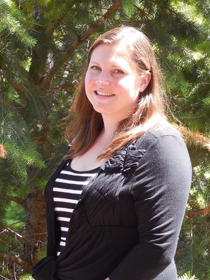
“The course was developed to engage students in global dialogues, with the understanding that we would be collaborating with the University of Winnipeg, visiting there at the end of term,” said Haney Douglass. “With the cancellation of our travel abroad and the switch to an online format, I wanted to ensure the students still met the original learning objectives and had the opportunity to build upon their cross-cultural competencies and continue progress towards becoming informed, open-minded and responsible global citizens.”
While group travel to Canada was out of the question, that did not stop Haney Douglass from exposing her students to opportunities to engage with human rights experts from Canada and around the world.
In one session, students had the opportunity to participate in an interactive lecture with Shauna Labman, a legal scholar from the University of Winnipeg specializing in human rights and refugee law. During that discussion, students compared and contrasted refugee law in the United States and Canada.
In another lesson, students participated in a Zoom discussion with Matthew Magnani, a Harvard doctoral candidate who was conducting research in Norway. An archaeologist studying indigenous traditional knowledge and its connections to social-political change, he shared with the students about human rights issues related to forced shifts in residence, cultural activities and language, through the lens of his work with the Saami reindeer herders of Norway and the Maasai people in Kenya.
To round out the semester, students met with Shailesh Shukla, an associate professor at the University of Winnipeg who works with Canada’s indigenous students. Shukla helped the students connect with the experiences and challenges of the Cree Nation community, who live in the Fisher River Reserve in Canada.
“The chance to engage directly with these caliber of experts, even in the online format, truly enriched the students’ experience in this class,” Haney Douglass said. “They were able to conduct their global dialogues even while in quarantine.”
Learning Assistant Positions Allow Honors Students to Lead
The Fall 2020 semester has brought unprecedented challenges for everyone, and one challenge that the Honors Program has faced is how to provide meaningful, face-to-face experiences in discussion-based seminars while still maintaining the safety of everyone involved. For some faculty teaching in Honors this year, this has also meant the added challenge of teaching an interactive, in-person course from the safety of their home.
Fortunately, Honors faculty have found ways to adapt– even when they are unable to be in the classroom. One of the biggest assets enabling remote instruction of in-person classes has been the expansion of opportunities for Honors Learning Assistants. These upperclass Honors students are facilitating in-person discussion and managing classroom dynamics while ensuring that the faculty instructors are able to attend class remotely and deliver lessons virtually.
Dr. Pascha Stevenson, who teaches a creative writing Honors seminar for first-year students, says having a student leader in the classroom to help facilitate is a game-changer: “I couldn’t teach remotely if it weren’t for Rose serving as the Honors Learning Assistant for my 189H seminar… Just knowing she’s there in the classroom handling things on that end makes me feel calmer and more prepared, more confident in a good classroom experience for our students.”
For her part, Rose Kottwitz is grateful for the in-person interactions this role provides: “All of my classes for this semester have been moved online,” said the junior English major, who is serving as a Learning Assistant for Dr. Stevenson’s Writing the Contemporary Fairytale 189H seminar. “Being a Learning Assistant has helped give my semester some structure and routine… it’s been incredibly valuable in keeping me motivated and engaged in all my classes.”
Not only do the Honors Learning Assistants keep the discussion flowing in Honors seminars, answer questions from first-year students, add their own insights to the class, and troubleshoot technological issues, but they’re gaining valuable leadership experience, presentation skills, and practice in classroom management.
“The Learning Assistant experience provides the individual serving in that role a different view of the educational process,” said Dr. Joann Ross, who teaches a seminar called Gender, Sex, and Race on Trial. “While they may never become educators themselves, it can provide ‘real world’ experience on course planning, pedagogy, and instructor-student interaction.”
While serving as Learning Assistants, Honors students also have the opportunity to fulfill some of their Honors requirements towards their degree through UHON 99H, a zero-credit course designed to help students reflect on and maximize experiential learning opportunities.
Beyond earning Honors credit, these Learning Assistants are developing critical transferable skills and meaningful connections: “This role has already been rewarding because of the new type of relationship I have with my professor, the leadership opportunities I have been given, and the content I have learned,” said Alison Steger, a sophomore Management major.
“I am learning alongside the students, which has given me a unique perspective.”
Honors Program Helps Grand Island Students Prepare for College Through New Program
Preparing for college and taking the ACT is a rite of passage for Nebraska high school students. However, college prep can sometimes get a bad rap as boring, cumbersome, or confusing. Not all students receive the attention or insider knowledge necessary to confidently take the next steps into college, including taking the ACT, which plays an important role in college admission and scholarship decisions.
To address this issue, this summer the University Honors Program partnered with Beyond School Bells, UNL Admissions, and OnToCollege founder John Baylor to develop a week-long summer college/ACT prep course called ACTivate: College Success Boot Camp for rising high school sophomores and juniors who qualify for free and reduced lunch.
ACTivate was piloted remotely in Grand Island Public Schools at the end of July. Dr. Tawana Grover, Grand Island Public School Superintendent, asked the Honors Program to create a program that could help her students prepare for the ACT but also find mentors and role models. The Honors Program intends to expand the program to schools across Lincoln, Omaha, and Greater Nebraska.
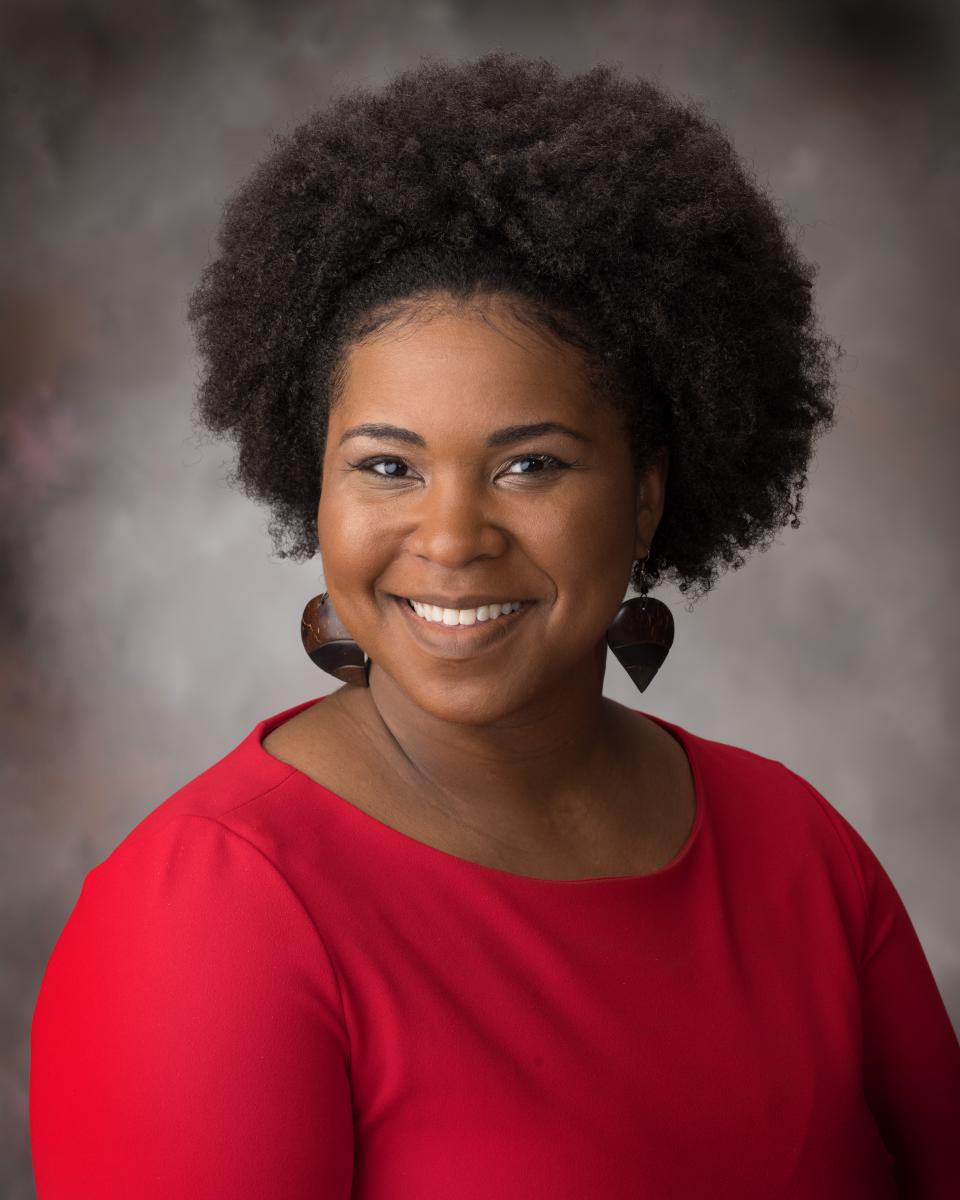
“ACTivate gives us a chance to utilize the fun of competition to help students understand the importance of college preparation, focusing on ACT prep as well as goal-setting and other future thinking activities.” said program facilitator Shannon Mangram, Coordinator of Community Engagement, Retention, and Recruitment in the University Honors Program.
The ACTivate curriculum was developed at the beginning of the summer via an online “design intensive” process sponsored by Beyond School Bells. During a concentrated period of time, current Honors students focused on creating activities and lesson plans in consultation with John Baylor of OnToCollege."
Next, Honors students implemented the lessons they created, with the goal of making preparing for college and the ACT enjoyable and engaging by gamifying the process through a week-long competition. The week culminated with the victorious high school team winning a special gift box from Admissions and a personalized greeting from the Honors Program Director.
In addition to instilling confidence among current high school students, the ACTivate program served as a bridge to the Grand Island community from UNL and from the Honors Program. The near-peer mentoring that took place throughout the week was intended to help Grand Island Senior High students further develop a vision for what college could provide for them – and perhaps include the University Honors Program in those plans.
“Many students in the Honors Program apply because it was encouraged by their parents or because they knew someone else who participated. For low-income students, though, making the connection to apply for Honors isn’t always as obvious. We often hear from students that they wish they’d have known about the Honors Program sooner,” said Mangram. “Hopefully ACTivate encourages the high school participants - if they don’t already - to think of themselves as the Honors students that we know they’re capable of being.”
According to Mangram, the ACTivate program would not have been nearly so successful if not for the collaborations that made it possible:
“There has been so much work poured into this program by many different people, including Honors students, community members and staff. When I first imagined this program, I didn’t know that it would turn into such an inspiring, collaborative effort. Thankfully, we have amazing partners who agreed on the value of a program like ACTivate, and were willing to dedicate time and resources to its creation and implementation. In the end, it turned out even better than I imagined it.”